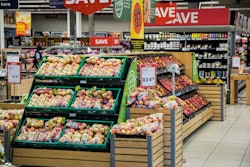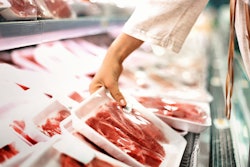
The effects of the COVID-19 pandemic could give rise to the next biggest case of food fraud since the 2013 horse meat scandal, if correct protocol levels continue to drop, according to food safety assurance specialist Lloyd’s Register.
As the supply chain continues to be affected by the current pandemic, there are growing concerns across the global food and beverage industry that vigilance against the varied types of food fraud is critically low. It follows news in a number of European countries, including Scotland, Italy and Spain, that recent circumstances have created a factor or motivation in recent reports of food crime.
Global supply has been under immense stress due to disruptions related to transport, labour and reduced production capacity, resulting in varying food quality. New suppliers have also been emerging, who might not have been vetted to the same level as established suppliers unable to meet demand.
When supply and manufacturing of food and beverages are not able to be policed so vigilantly, food fraud can be committed more readily. Where acts such as substitution of ingredients and relabelling of out of date items were illegal cost cutting schemes, logistics and manufacturing shortfalls could now mean that instances of food fraud are committed just to keep up with demand.
“During this uncertain time, we must be vigilant to food fraud of all kinds because now more than ever the industry is at risk. With consumer trust and product safety more important than ever, we urge business to ensure they continue taking the correct precautions to maintain supply chain integrity," Kimberly Carey Coffin, Global Technical Director – Supply Chain Assurance at Lloyd’s Register, comments.
With the catastrophic effects of a food fraud scandal looming, businesses should make sure they are using suppliers that have been verified according to international standards. Supply chain integrity programmes from independent assurance specialists, like Lloyd’s Register, can also ensure product provenance, relevant certification and audits have been taken place.
“The value of your brand is dependent on the food and drink being supplied to you being unadulterated and of the highest quality. At Lloyd’s Register, we have enhanced our remote auditing and inspection services to ensure standards are being upheld," says Coffin. “Now more than ever, organisations’ reputations are in the firing line, and a food fraud scandal could be catastrophic to an already-stretched industry. Staying vigilant and making use of support with verification and certification can go some way to avoiding this.”


















